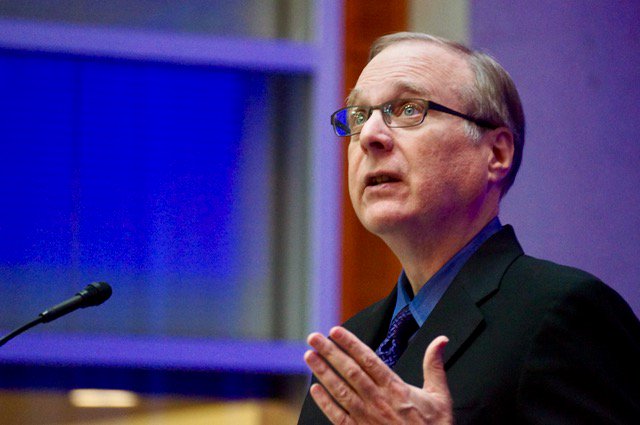The Enduring Legacy of Paul Allen: A Visionary’s Idea Man Mindset
In a poignant reflection on the lasting impact of technological pioneer Paul Allen, GeekWire revisits a revealing 2011 interview with the late Microsoft co-founder that offers unique insights into the mind of a man whose vision continues to shape scientific advancement long after his passing. The interview’s renewed relevance comes in the wake of Allen’s estate launching an impressive $3.1 billion Fund for Science and Technology, a testament to his enduring commitment to innovation and discovery. Hosted by Todd Bishop and Kurt Schlosser, this special podcast episode explores the personal philosophy behind Allen’s “Idea Man” approach to both business and philanthropy, providing listeners with a deeper understanding of how his thinking continues to influence technological progress today.
What made Allen truly exceptional was his rare combination of technical brilliance and humanitarian vision. Throughout the 2011 conversation, Allen speaks with remarkable candor about his relationship with Bill Gates, offering previously unshared perspectives on their legendary partnership that transformed personal computing and created one of the world’s most influential companies. Yet beyond the Microsoft story, the interview reveals Allen’s deep-seated passion for pursuing big, transformative ideas across an astonishing range of disciplines. His approach to “big bet” philanthropy wasn’t simply about wealth distribution but reflected his fundamental belief that targeted investments in promising scientific frontiers could accelerate breakthroughs that might otherwise take decades to achieve. This philosophy is perfectly embodied in the new Fund, which aims to continue Allen’s tradition of identifying and supporting scientific endeavors with potentially revolutionary implications.
The interview provides fascinating glimpses into Allen’s intricate thought processes, showcasing how he approached complex problems with both analytical rigor and creative imagination. Allen describes how his early fascination with computers evolved into a broader curiosity about the most challenging questions facing humanity—from understanding consciousness through brain science to exploring the vastness of space. What emerges is a portrait of a man driven not by conventional metrics of success but by an insatiable intellectual curiosity that transcended disciplinary boundaries. This multifaceted approach to knowledge is reflected in the diversity of institutions he founded, including the Allen Institute for Brain Science, the Allen Institute for AI, and Vulcan Inc., each tackling different aspects of his expansive vision for how technology could address fundamental human challenges.
Perhaps most touching are Allen’s reflections on how personal experiences shaped his philanthropic priorities. His battle with cancer influenced his investments in medical research, while his lifelong love of music led to the creation of cultural institutions like the Museum of Pop Culture in Seattle. Allen speaks about these passions with unexpected warmth and humanity, revealing the man behind the technological achievements. Particularly captivating are his stories about jamming with rock legends—moments of pure joy that balanced his intense intellectual pursuits. These personal anecdotes provide crucial context for understanding Allen’s philanthropic approach, which never separated scientific advancement from human experience and cultural enrichment. His belief that technological progress should ultimately enhance people’s lives and expand human potential remains a guiding principle for the organizations that continue his work.
The GeekWire hosts thoughtfully connect Allen’s 2011 perspectives to the present-day impact of his vision, demonstrating how his forward-thinking approaches to artificial intelligence, neuroscience, and space exploration anticipated many of today’s most important technological conversations. The new Fund for Science and Technology represents not merely a continuation of Allen’s philanthropy but an evolution of his approach, applying lessons learned from his lifetime of innovation to address emerging challenges. The podcast discussion highlights how Allen’s unique willingness to invest in high-risk, high-reward scientific ventures created a model for technological philanthropy that has influenced other wealthy individuals to direct resources toward ambitious research rather than conventional charitable giving. This approach to using private wealth for public scientific advancement represents one of Allen’s most significant legacies.
As the GeekWire team reflects on Allen’s enduring impact on Seattle’s technological ecosystem and global scientific research, they paint a portrait of a visionary whose influence continues to grow even after his passing in 2018. The interview serves as both a historical document of Allen’s thinking and a blueprint for future innovation—reminding listeners that behind every technological advance are human beings with dreams, flaws, and boundless curiosity. For those seeking to understand how great ideas translate into world-changing realities, this retrospective conversation with Paul Allen offers invaluable insights from a man who consistently saw possibilities others missed. The new Fund ensures that Allen’s approach to supporting ambitious scientific inquiry will continue to accelerate discovery and innovation for generations to come, making this revisited interview not just a look back at a remarkable life, but a window into the future his ideas continue to shape.


